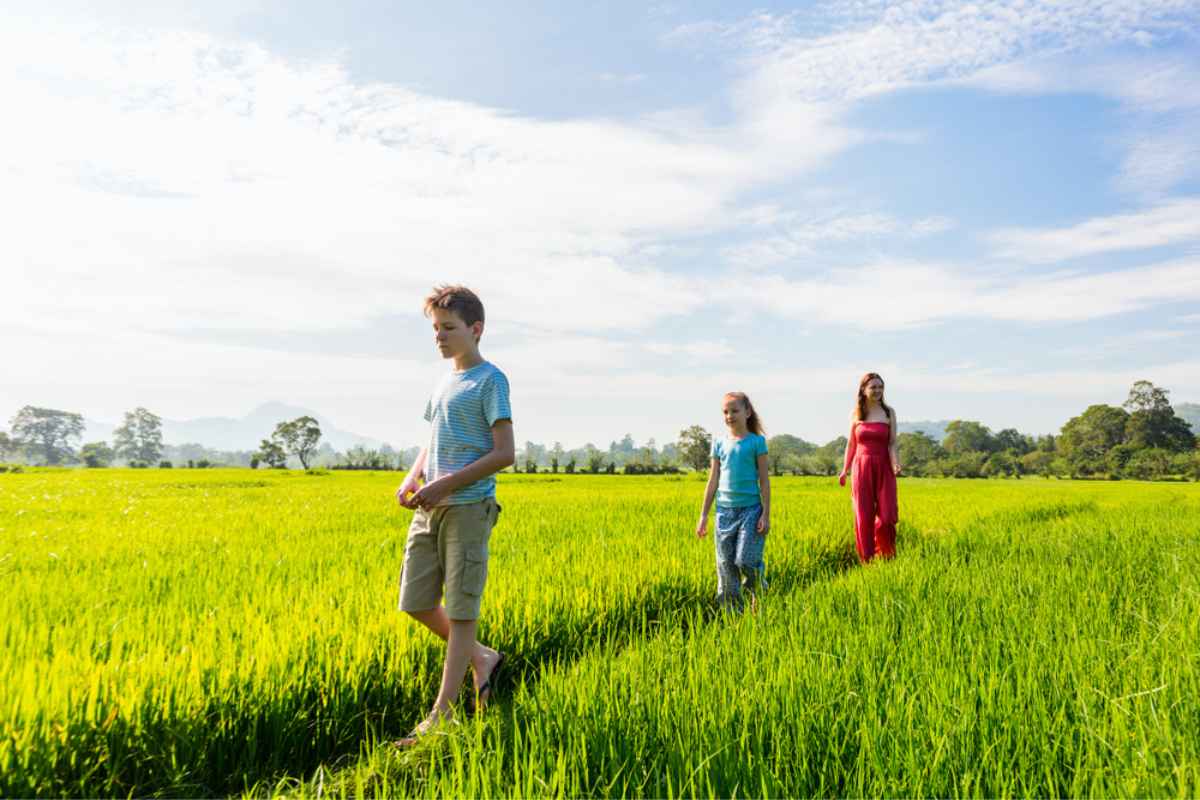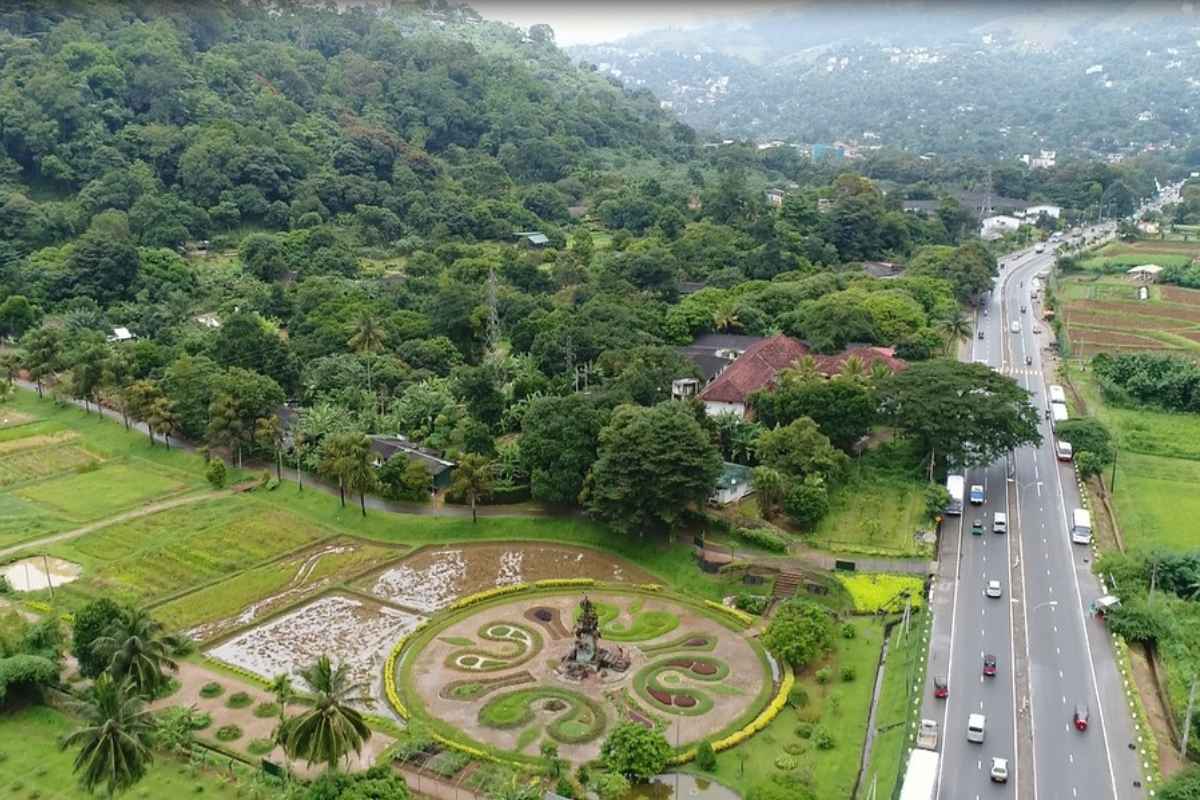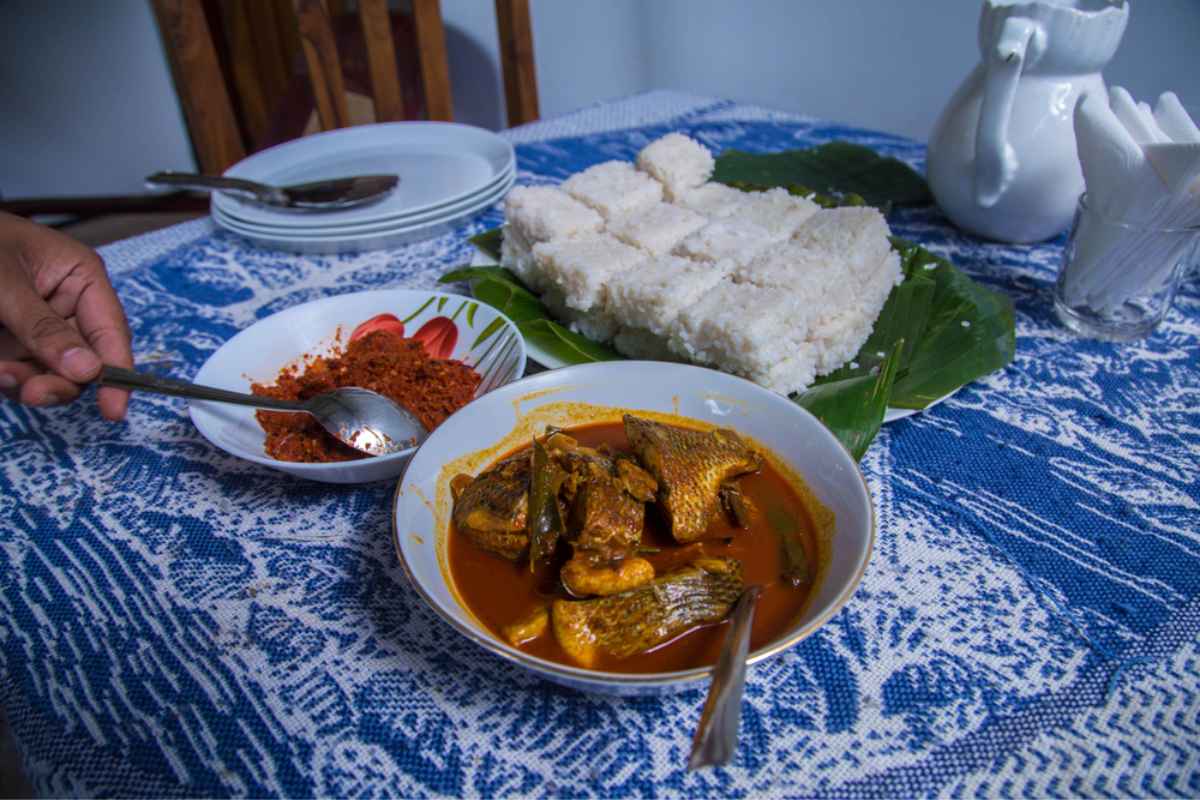
Agro-tourism in Sri Lanka is blossoming, combining the island’s rich agricultural heritage with unique travel experiences. This combination provides an authentic glimpse into the rural lifestyle and traditions while contributing significantly to the local economy and development. Sri Lanka, known for its diverse landscapes and cultural richness, presents a perfect backdrop for agro-tourism, where visitors can immerse themselves in the everyday life of a farmer, enjoy fresh, organic produce, and engage in various agricultural activities.
Benefits of Agro-Tourism in Sri Lanka
The benefits of agro-tourism in Sri Lanka are manifold. It serves as an additional income source for farmers, allowing them to diversify and stabilize their income. This sector also paves the way for offering food and accommodation services, directly benefitting the local community. Agro-tourism introduces a unique opportunity for direct selling, where farmers can now offer their products, like fresh fruits, vegetables, and handmade goods, to tourists. This ensures better prices for the farmers and guarantees fresh and organic products for the visitors. The involvement in farming experiences, like planting, harvesting, or even cooking demonstrations using fresh produce, provides an enriching experience for travellers and an innovative edge for farmers.
Agro-Tourism Experience for Travellers
Travelers to Sri Lanka looking for an authentic rural experience will find agro-tourism particularly appealing. They can participate in various farm activities, enjoy traditional Sri Lankan meals prepared from freshly harvested ingredients, and stay in accommodations that offer a rustic yet comfortable experience. This gives travellers a chance to escape the hustle and bustle of city life and enjoy the serene beauty of the countryside. They can also learn about sustainable farming practices and the importance of organic farming in today’s world.
Key Agro-Tourism Locations in Sri Lanka
Sri Lanka, with its rich agricultural heritage and diverse landscapes, offers a plethora of destinations for agro-tourism. This form of tourism connects travellers with rural life and traditional farming practices and contributes significantly to the local economies. Here, we explore some of the critical agro-tourism locations in Sri Lanka.
Sigiriya
Sigiriya, renowned for its ancient rock fortress, is also a hub for agro-tourism. The area is surrounded by lush forests and fertile lands, making it an ideal location for agricultural activities. Visitors can explore traditional farming methods, cultivate rice, and learn about local crops. The region is also famous for its spice gardens, offering a sensory experience with native spices and herbs.
Habarana
Habarana, located close to Sigiriya, is another significant agro-tourism destination. It serves as a gateway to explore the rural lifestyle of Sri Lanka. The area is characterized by its scenic beauty and tranquil village life. Tourists can participate in farming activities, enjoy traditional Sri Lankan meals prepared with fresh, locally sourced ingredients, and even partake in fishing and cooking demonstrations.
Anuradhapura
Anuradhapura, a city steeped in history, is also known for its agro-tourism potential. The region, with its ancient irrigation systems, showcases the advanced agricultural practices of the past. Visitors can explore organic farms, learn about ancient and modern farming techniques, and understand the significance of agriculture in Sri Lanka’s history.
Polonnaruwa
Polonnaruwa, another ancient city, offers a glimpse into Sri Lanka’s agricultural past. The area is home to many rice fields and is a testament to the country’s enduring relationship with rice cultivation. Agro-tourists can experience rice farming, from planting to harvest, and appreciate the traditional methods still in use.
Kandy
Kandy, known for its picturesque landscapes and rich cultural heritage, is also a prime location for agro-tourism. The region’s tea plantations are a major attraction. Visitors can take guided tours of the tea estates, learn about tea processing, and enjoy fresh cups of Ceylon tea right from the source.
Tangalle
Tangalle, located along the southern coast, is emerging as an agro-tourism destination. Known for its serene beaches, the area is also home to coconut plantations and spice gardens. Tourists can visit these farms, learn about coconut and spice cultivation, and enjoy the coastal rural life of Sri Lanka.
Each location offers a unique agro-tourism experience, showcasing the diversity of Sri Lanka’s agricultural landscape. Visitors get to explore the scenic beauty and cultural richness of these areas and gain insight into traditional farming practices, contributing to a deeper understanding and appreciation of Sri Lanka’s agrarian roots.
Government Role in Promoting Agro-Tourism
The government of Sri Lanka plays a pivotal role in nurturing and promoting agro-tourism. This sector can potentially contribute significantly to the country’s economy and agricultural development. Two notable initiatives in this regard are the Agro Technology Park Gannoruwa and the Chamal Rajapaksha Agro Technology and Tourism Park.
Agro Technology Park Gannoruwa
Located in Kandy, the Agro Technology Park Gannoruwa is a prime example of the government’s commitment to agro-tourism. Managed by the Department of Agriculture, this park is a central agricultural hub, offering a range of efficient, integrated agricultural extension services. Its primary aim is to enhance public access to agricultural information, crucial for informed farming and sustainable agricultural practices.
The park is not just about providing information; it embodies a broader vision to promote agro-tourism. This is achieved by showcasing agro-technology parks and exhibitions highlighting the concept of edible landscaping. Such an approach conserves traditional agricultural values and opens avenues for tourists to experience and appreciate the nuances of agricultural life in Sri Lanka.
One of the significant outcomes of this park is its focus on improving productivity and optimizing profitability for farmers. Doing so ensures the sustainability of the agricultural sector, a critical component of Sri Lanka’s economy and cultural heritage.
Chamal Rajapaksha Agro Technology and Tourism Park
Another landmark in promoting agro-tourism is the Chamal Rajapaksha Agro Technology and Tourism Park in Bataatha. Established in 2008, it is the second Agro Technology Park in Sri Lanka. The park is a realization of a vision shared by the former Agriculture Minister, Mr. Chamal Rajapaksha, and Dr. Rohan Wijekoon, the former Director General of Agriculture. It embodies the concept of a green park, focusing on the environmental sustainability of agricultural practices.
The fundamental goal of this park is to benefit the farming community. It serves as a model for other agro-tourism initiatives by combining agricultural development with tourism. By doing so, it supports the farmers in enhancing their income and contributes to preserving Sri Lanka’s rich agricultural heritage.
Private Sector Involvement in Agro-Tourism
The private sector in Sri Lanka has been instrumental in developing and promoting agro-tourism, creating unique experiences that blend traditional agricultural practices with tourism. Key examples of this involvement are the DOOL Agro Villa, CIC Agri Holiday Resort, and the Sigiriya village tour by the Eco Team.
DOOL Agro Villa
Located in Sadamalgama, Rambewa, Anuradhapura, DOOL Agro Villa is an eco-friendly agritourism hotel that exemplifies the fusion of sustainable agriculture and tourism. This establishment’s vision is transforming the Sadamalgama village into a thriving and self-sufficient agricultural community. Here are some highlights of what DOOL Agro Villa offers:
Organic Paddy Cultivation: The Villa focuses on organic paddy cultivation, adhering to sustainable agriculture practices.
Mixed Crop Organic Farms: Adjacent to the paddy fields is a 2-acre land developed for organic coconut, fruits, and vegetable farming.
Agro-Tourism Vision: DOOL Agro Villa aspires to be a frontrunner in agro-tourism, offering a unique blend of ancient irrigation techniques and modern agricultural technology.
Cultural Values: The Villa emphasizes the rich cultural heritage of Sri Lanka, aiming to provide guests with an authentic experience.
CIC Agri Holiday Resort
The CIC Agri Holiday Resort, set in the verdant expanses of Hingurakgoda, spans 1380 acres and acts as a live showcase of the impact of agriculture on Sri Lanka’s society, culture, and economy. This resort is not just a place to stay but an educational journey into agriculture. Key features include:
Comfortable Accommodations: It offers seven air-conditioned cabanas, including options for families.
Engaging Activities: Guests can partake in farm tours and cooking demonstrations and enjoy the harvest of fresh vegetables directly from the farm.
Gateway to Wildlife and Heritage: The resort is a base for exploring local wildlife and is conveniently located near historical and heritage sites.
Sigiriya Village Tour by the Eco Team
This immersive village tour offers an authentic experience of rural life and traditional farming practices in Sri Lanka. Key aspects of this tour include:
Exploration of Rural Landscapes: The 6 km trail goes through jungle patches, chaina cultivations, and paddy fields, leading to Thalkote Wewa, an ancient water tank vital for local agriculture.
Chaina Cultivation: This traditional slash-and-burn farming method is a unique aspect of agriculture in the region.
Unique Accommodations: The tour offers a chance to spend a night in a tree house, a practice used by local farmers to protect their crops from wild animals. This experience is both adventurous and culturally enlightening. More Details
Cultural and Traditional Aspects
Agro-tourism in Sri Lanka offers much more than just an insight into farming practices; it is a gateway to the island’s rich cultural and traditional tapestry. This form of tourism offers visitors an immersive experience beyond typical tourist attractions, delving deep into the heart of Sri Lanka’s heritage.
Traditional Fishing
Fishing is integral to Sri Lankan culture, especially in coastal communities. Agro-tourism provides an opportunity for tourists to experience traditional fishing techniques first-hand. Visitors can join local fishermen in their daily routines, learn about sustainable fishing practices, and even participate in catching fish using age-old methods. This experience connects tourists with the local way of life and instils an appreciation for the island’s maritime heritage.
Participation in Local Festivals
Sri Lanka is known for its vibrant festivals, many of which are tied to agricultural cycles. Through agro-tourism, visitors have the unique opportunity to participate in these local festivals. These events are a riot of colours, music, dance, and traditional foods, offering an authentic glimpse into the island’s cultural richness. Participating in such festivals allows tourists to engage with the community, understand local customs, and experience the celebratory spirit that defines Sri Lankan culture.
Learning about Ancient Practices: Hela Wedakama
Hela Wedakama, the traditional system of medicine in Sri Lanka, is another cultural aspect highlighted in agro-tourism. This ancient practice uses natural herbs and plants, many of which are grown locally, to heal various ailments. Tourists interested in holistic and natural wellness can learn about these practices directly from traditional practitioners. This experience is not just about understanding an alternative medical system; it’s about appreciating a crucial part of Sri Lanka’s heritage passed down through generations.
Cultural Immersion
Agro-tourism in Sri Lanka offers a cultural immersion that is rare and authentic. It allows tourists to live and experience the everyday life of the locals, from their farming practices and fishing routines to their festivals and traditional medical practices. This immersion provides a deeper understanding of the local way of life and a greater appreciation of the cultural and traditional richness of Sri Lanka.
Challenges and Solutions in Agro-Tourism
Despite its potential, agro-tourism in Sri Lanka faces challenges like inadequate infrastructure and lack of marketing. Addressing these challenges requires collaborative efforts between the government, private sector, and local communities to develop infrastructure and implement effective marketing strategies highlighting Sri Lankan agro-tourism’s unique aspects.
Sustainability is at the core of agro-tourism in Sri Lanka. Practices like organic farming, conservation of water resources, and use of renewable energy are emphasized to ensure that agro-tourism develops in harmony with the environment. This sustainable approach provides long-term benefits for both the community and the environment.
The future of agro-tourism in Sri Lanka looks promising. With increasing global interest in sustainable and experiential travel, Sri Lanka’s agro-tourism sector is poised for growth. Emerging trends like farm-to-table dining experiences and eco-friendly accommodations will likely attract more tourists to the island.
Gaining international exposure is crucial for the growth of agro-tourism in Sri Lanka. Marketing strategies highlighting Sri Lankan agro-tourism’s unique experiences and cultural aspects can attract a global audience. Participation in international tourism fairs, collaboration with travel agencies, and digital marketing are effective ways to promote Sri Lanka as a premier agro-tourism destination.
Planning Your Agro-Tourism Trip to Sri Lanka
When planning an agro-tourism trip to Sri Lanka, understanding the agricultural calendar is crucial to ensure a rich and immersive experience. The country’s farming activities are broadly divided into two main seasons: the Maha Season and the Yala Season. Each season offers unique activities and insights into Sri Lankan agriculture.
Maha Season (November to April)
November – Land Preparation for Paddy Cultivation
Wap Magul Ceremony: The season begins with this traditional ceremony, where guests can join the local community in ploughing the first field with buffaloes.
Traditional Farming Practices: Visitors can learn about traditional and modern land preparation techniques, including buffalo ploughing and water distribution methods.
Cultural Engagement: The ceremony includes offerings to deities and ends with a serving of “Ambula,” a traditional meal.
December – Sowing and Transplanting
Paddy Cultivation: Observe or participate in sowing paddy and transplanting seedlings.
Cultural Customs: Witness the rituals performed by farmers before starting sowing or transplanting.
December to February – Fertilizing, Weeding, and Pest Control
Community Farming:
- Join in community weeding.
- Learn traditional pest control methods.
- Share meals with the farmers.
March to April – Harvesting
Harvest Celebration: Participate in the first harvesting ceremony led by the landowners.
Cultural Festivities: This period marks much joy and precedes the New Year season in the country.
Yala Season (April to October)
Mid-April to End of May – Preparation for Vegetable Cultivation
Diverse Crops: Cultivation of vegetables like onions, chillies, and aubergine.
Nursery Establishment: Learn about setting up nurseries for vegetable cultivation.
June – Planting and Transplanting Seedlings
Field Tours: Explore different farming skills related to this phase with a naturalist.
Hands-on Experience: Participate in planting seeds and transplanting seedlings.
July to August – Tending and Plant Protection
Crop Care: Engage in activities related to tending vegetable plots and protecting plants.
September to October – Harvesting of Crops
Harvest Time: Experience the harvesting of a variety of vegetables cultivated during the Yala season.
When planning your trip, consider timing your visit to coincide with these activities for a whole agro-tourism experience. Each season and its corresponding activities offer a unique window into the agricultural life of Sri Lanka, blending cultural insights with hands-on farming experiences.
Agro-tourism in Sri Lanka offers a unique and enriching experience that combines the island’s rich agricultural heritage with its stunning natural beauty and cultural diversity. It benefits travellers looking for authentic experiences, significantly supports local communities, and promotes sustainable tourism practices. As this sector grows, it holds great potential for contributing to Sri Lanka’s tourism industry and rural development.
Article by
Ravindu Dilshan Illangakoon
As co-founder and Head of Content at Sri Lanka Travel Pages, I ensure that every blog post we publish is AMAZING.






